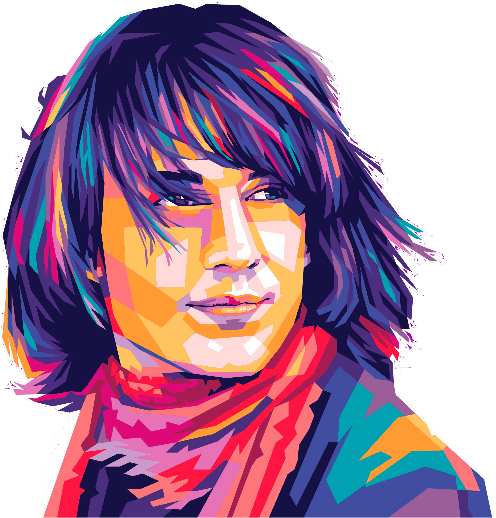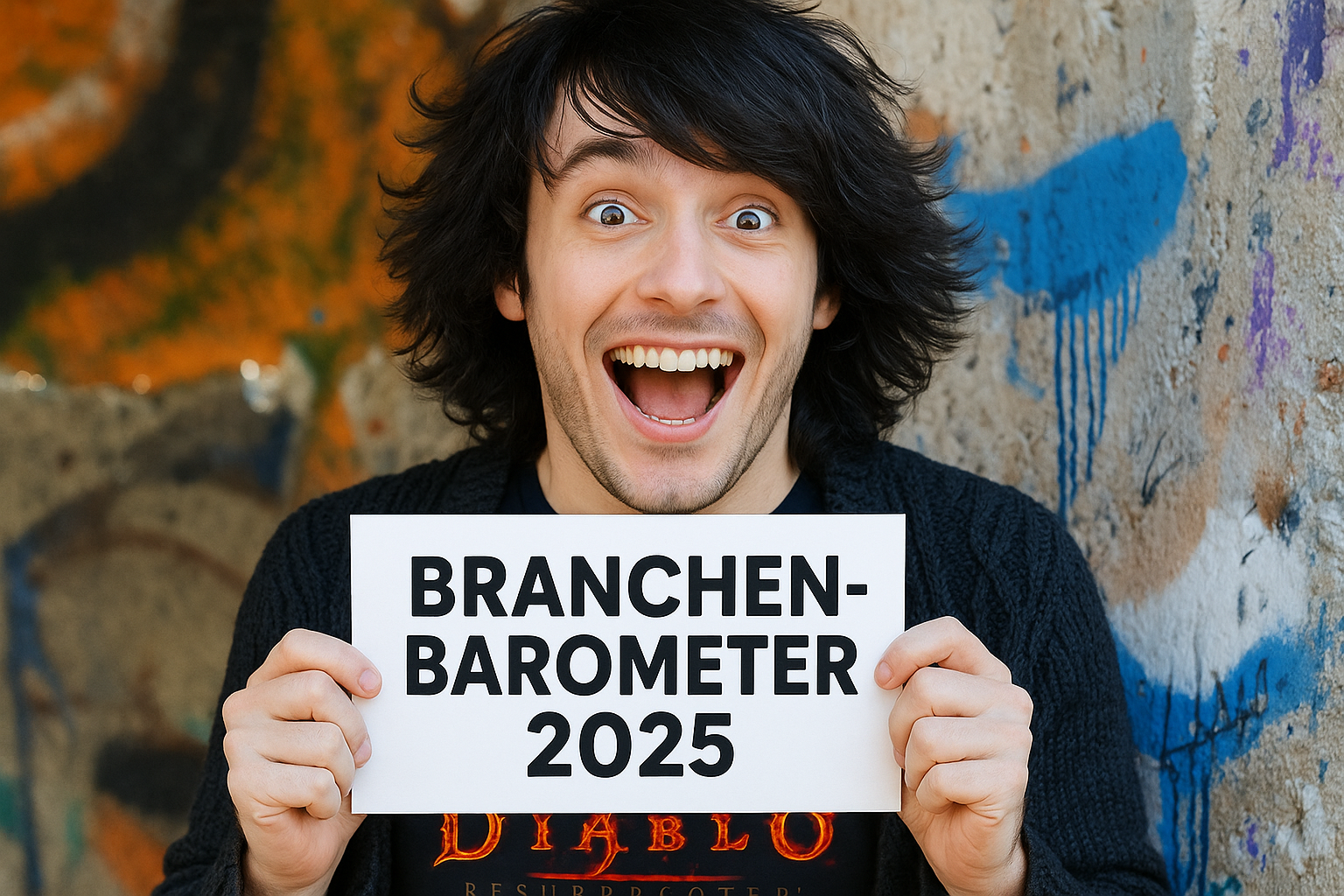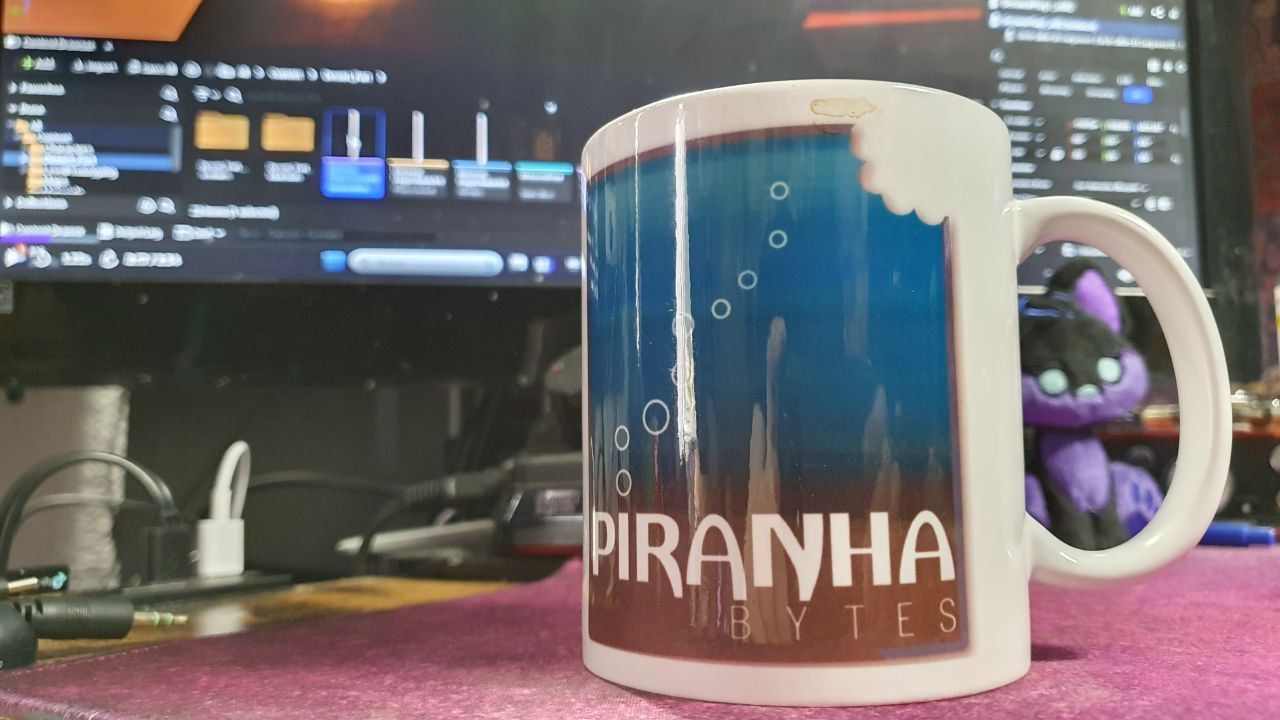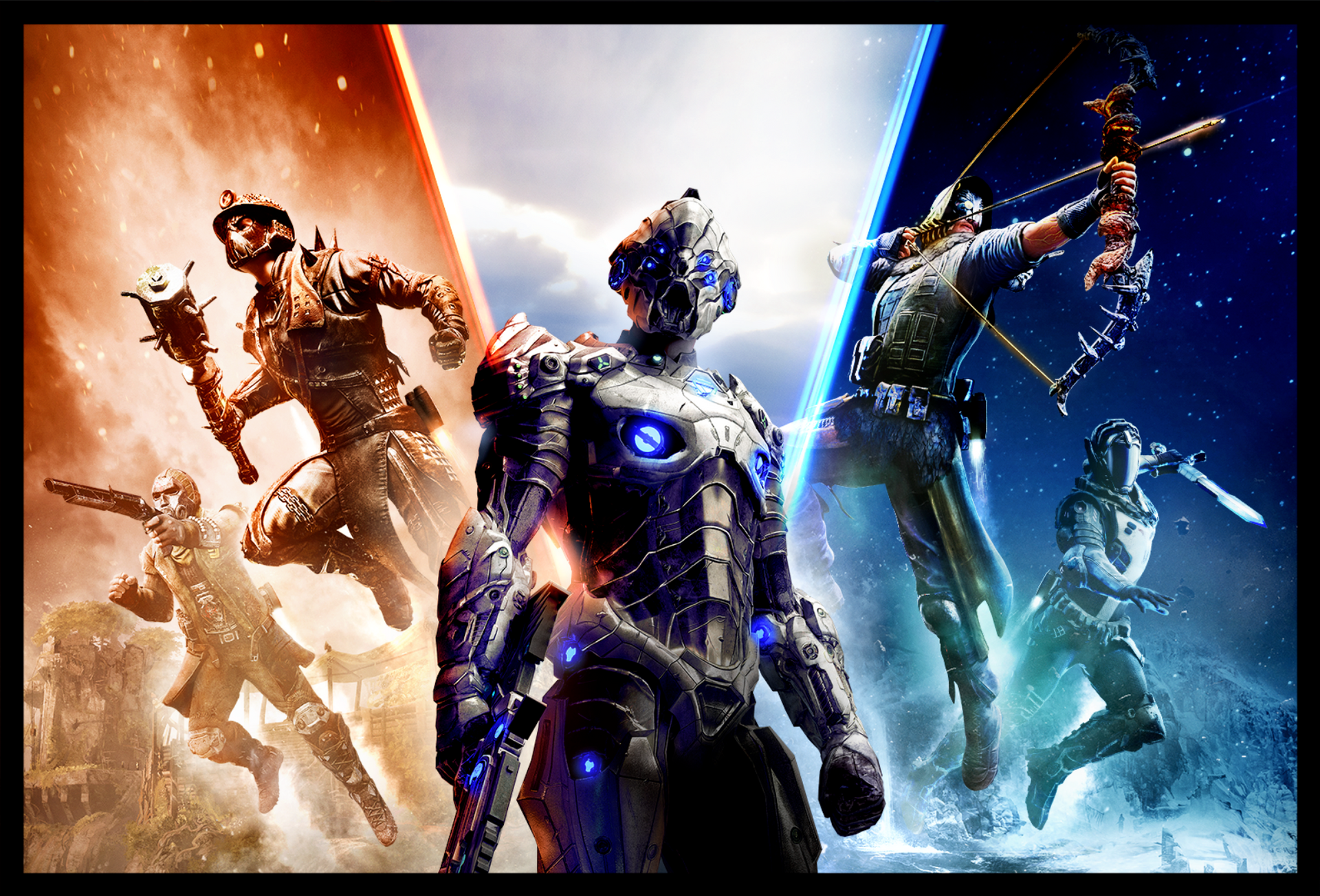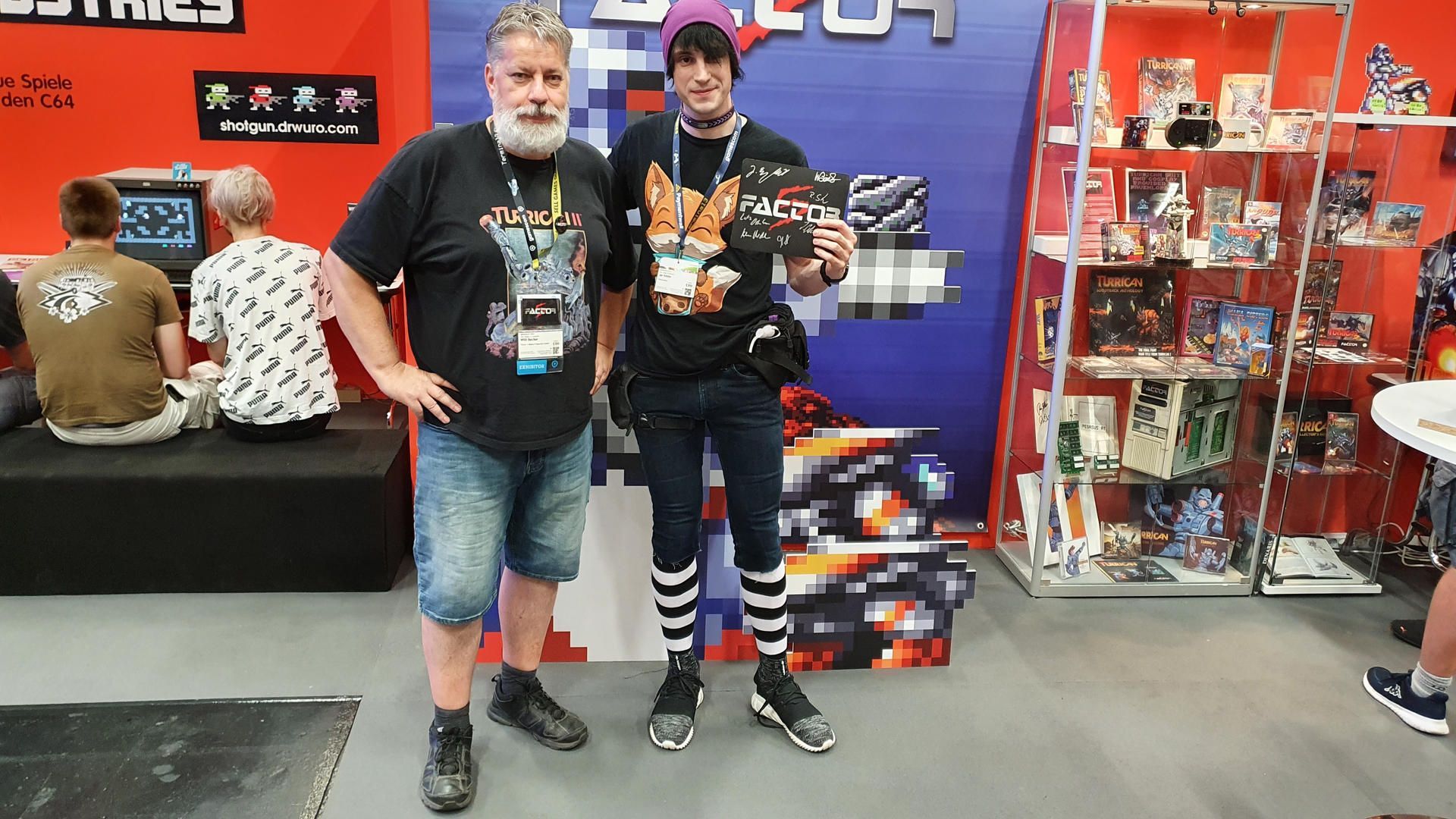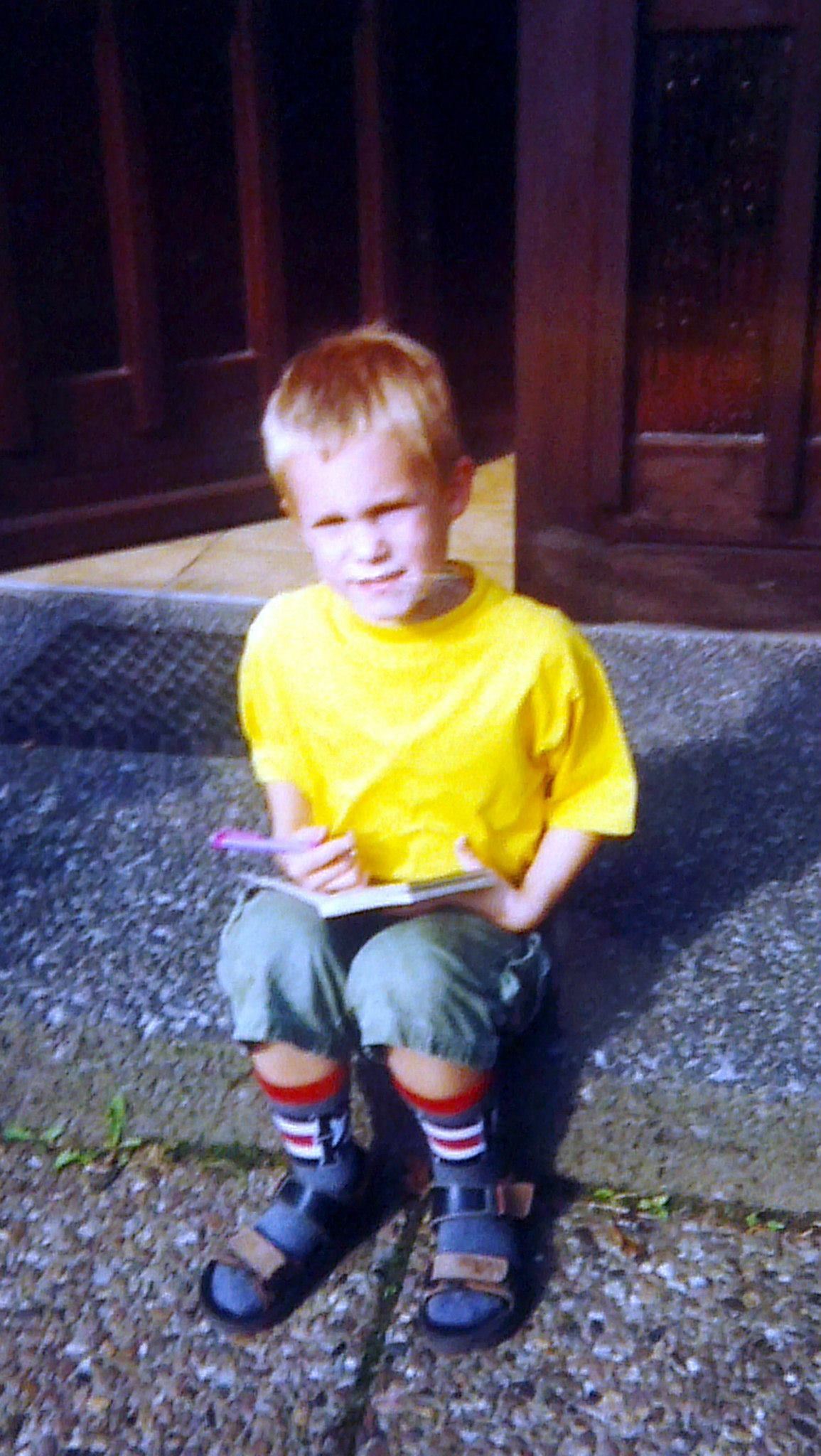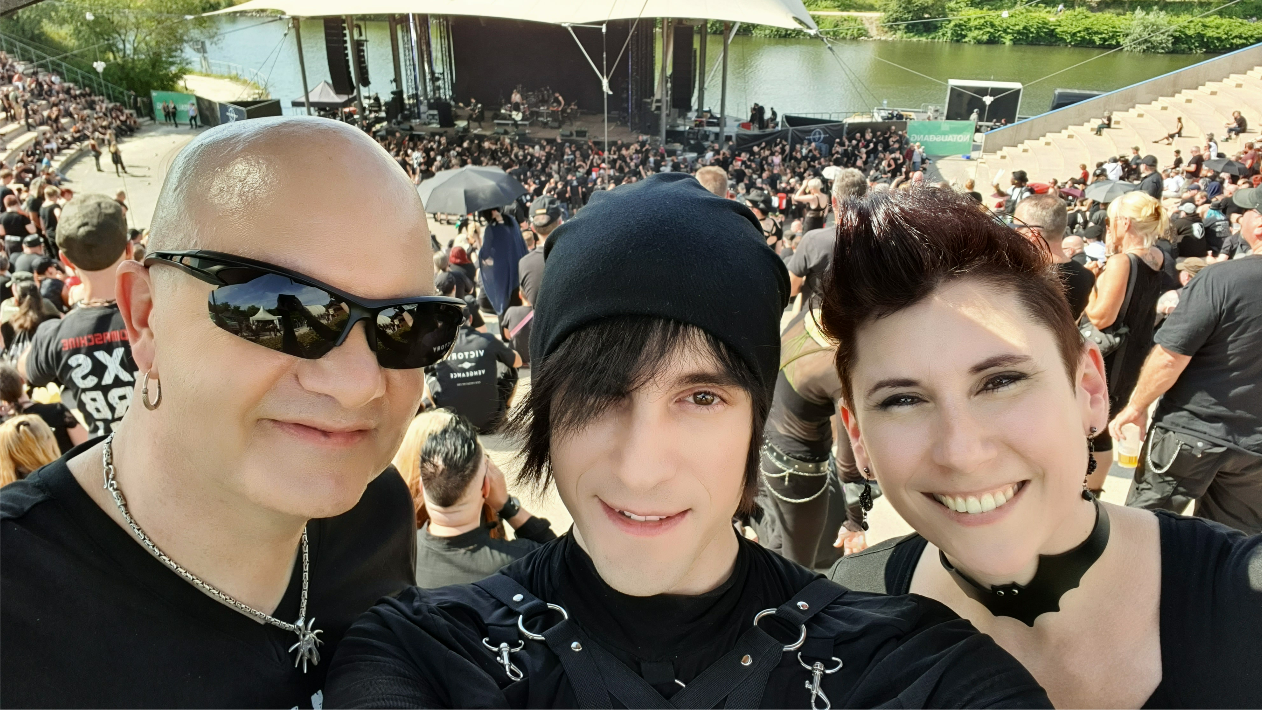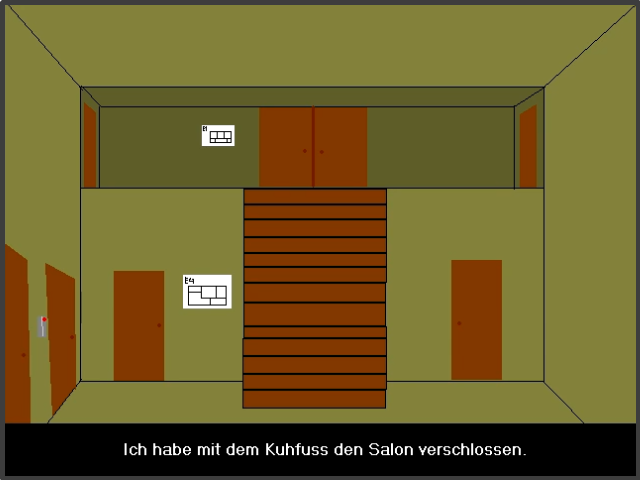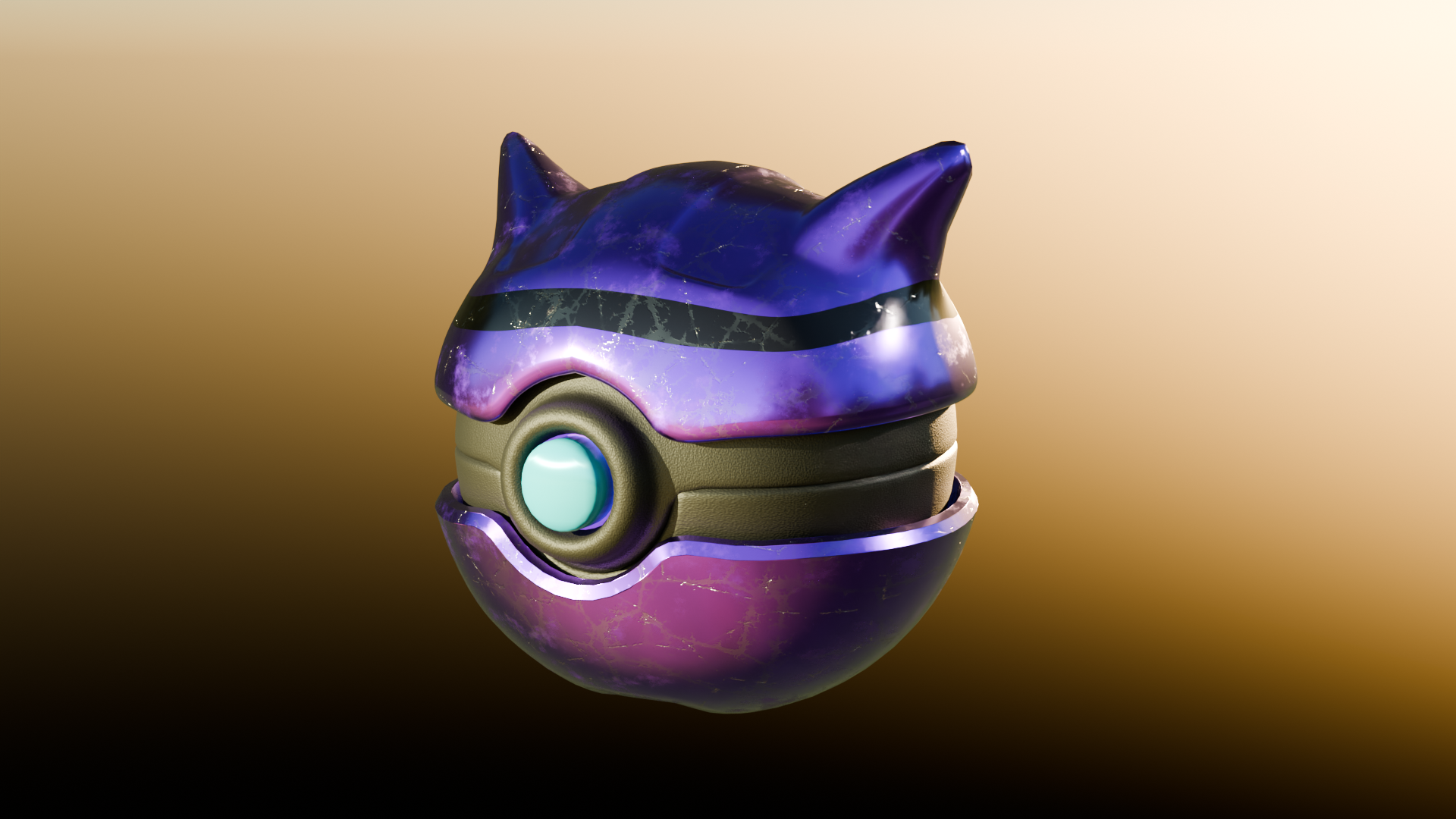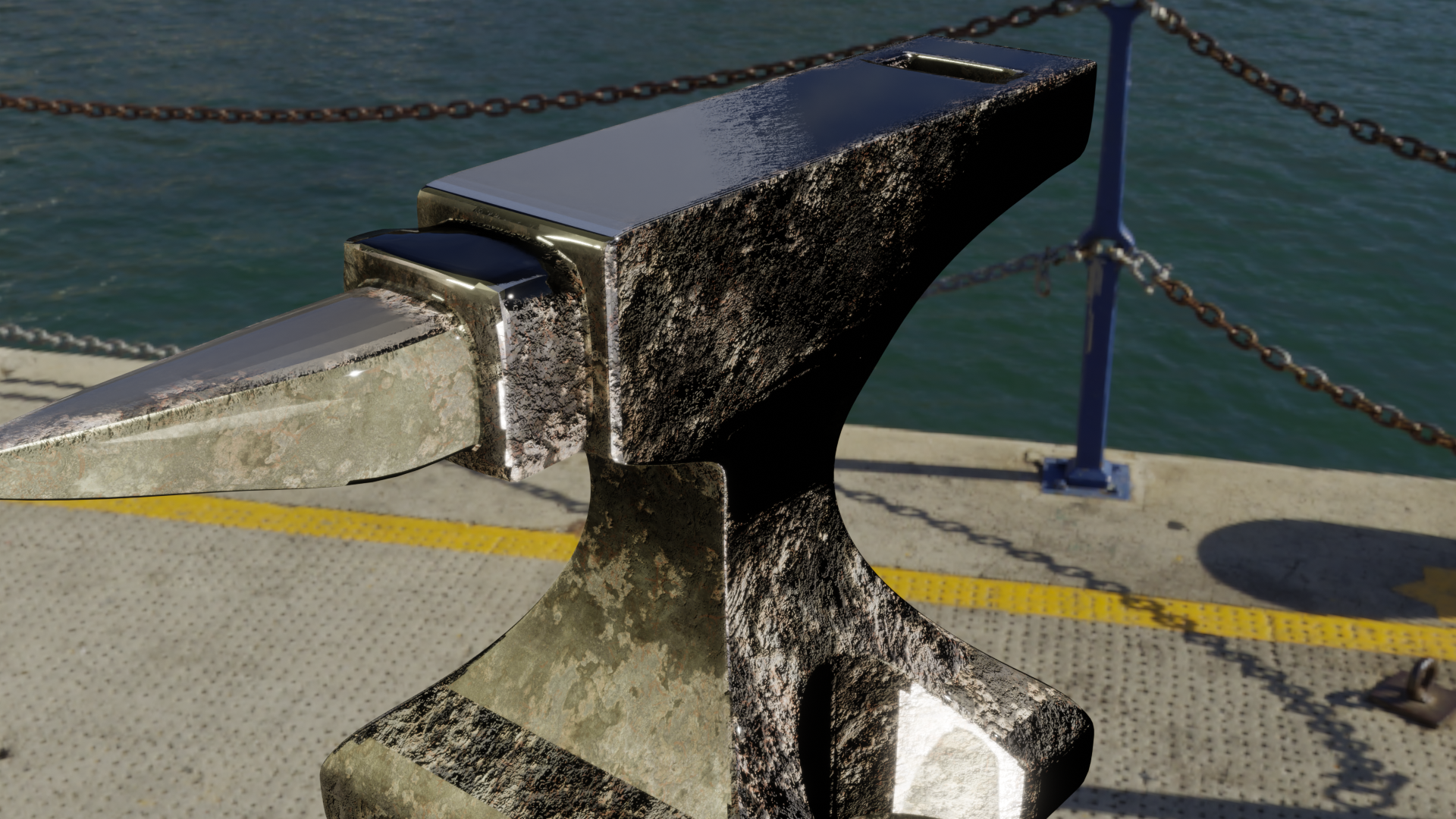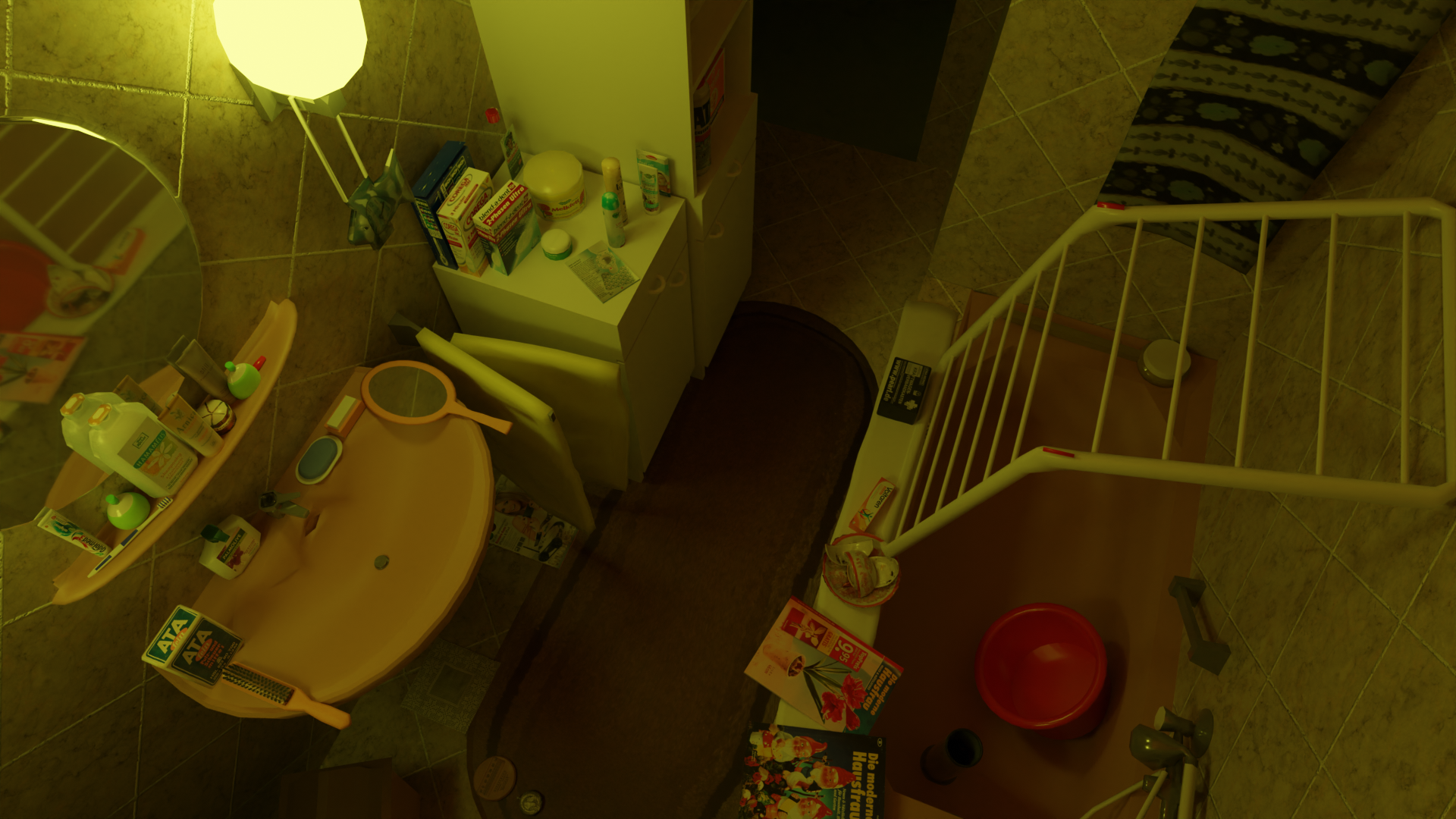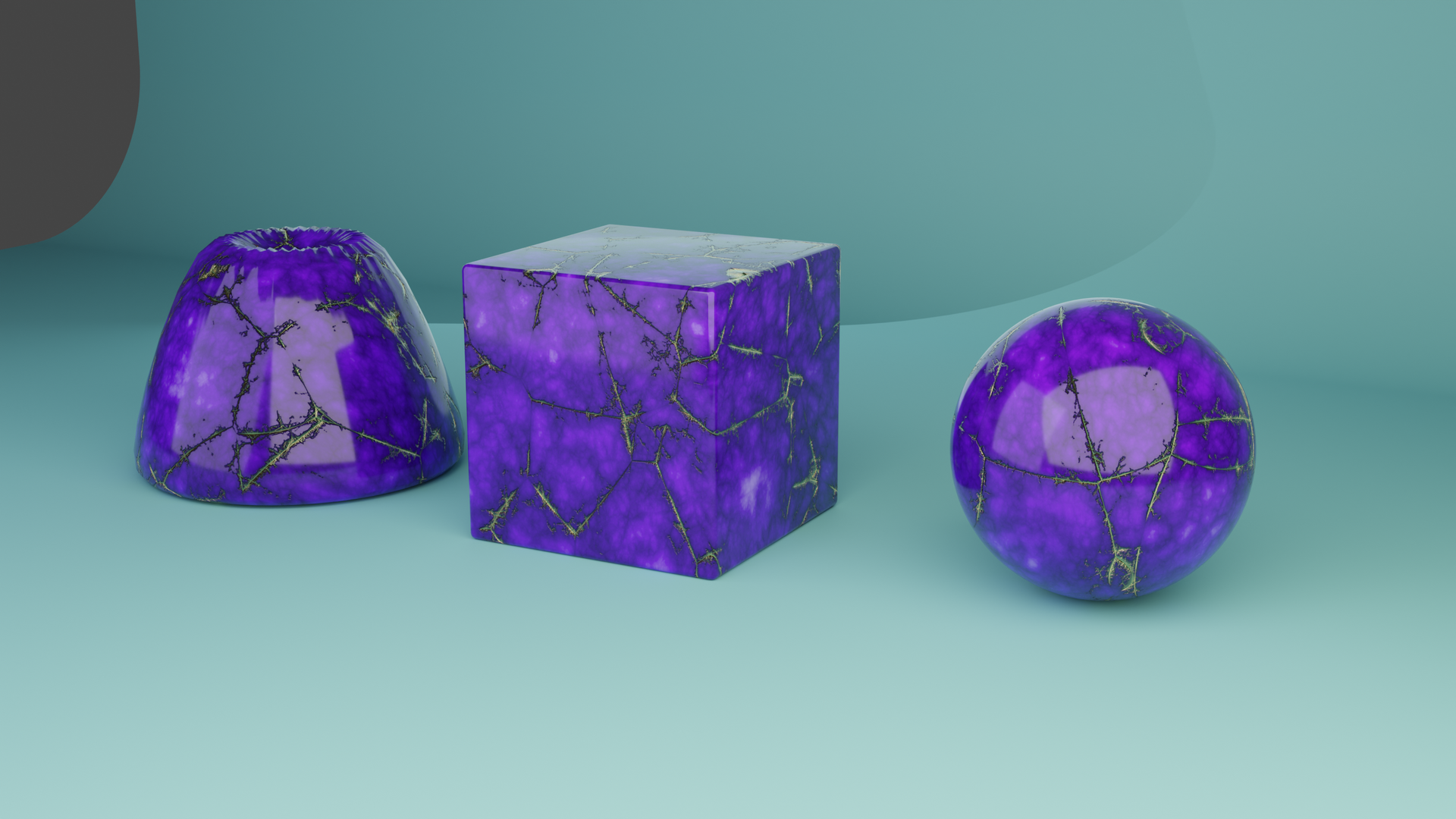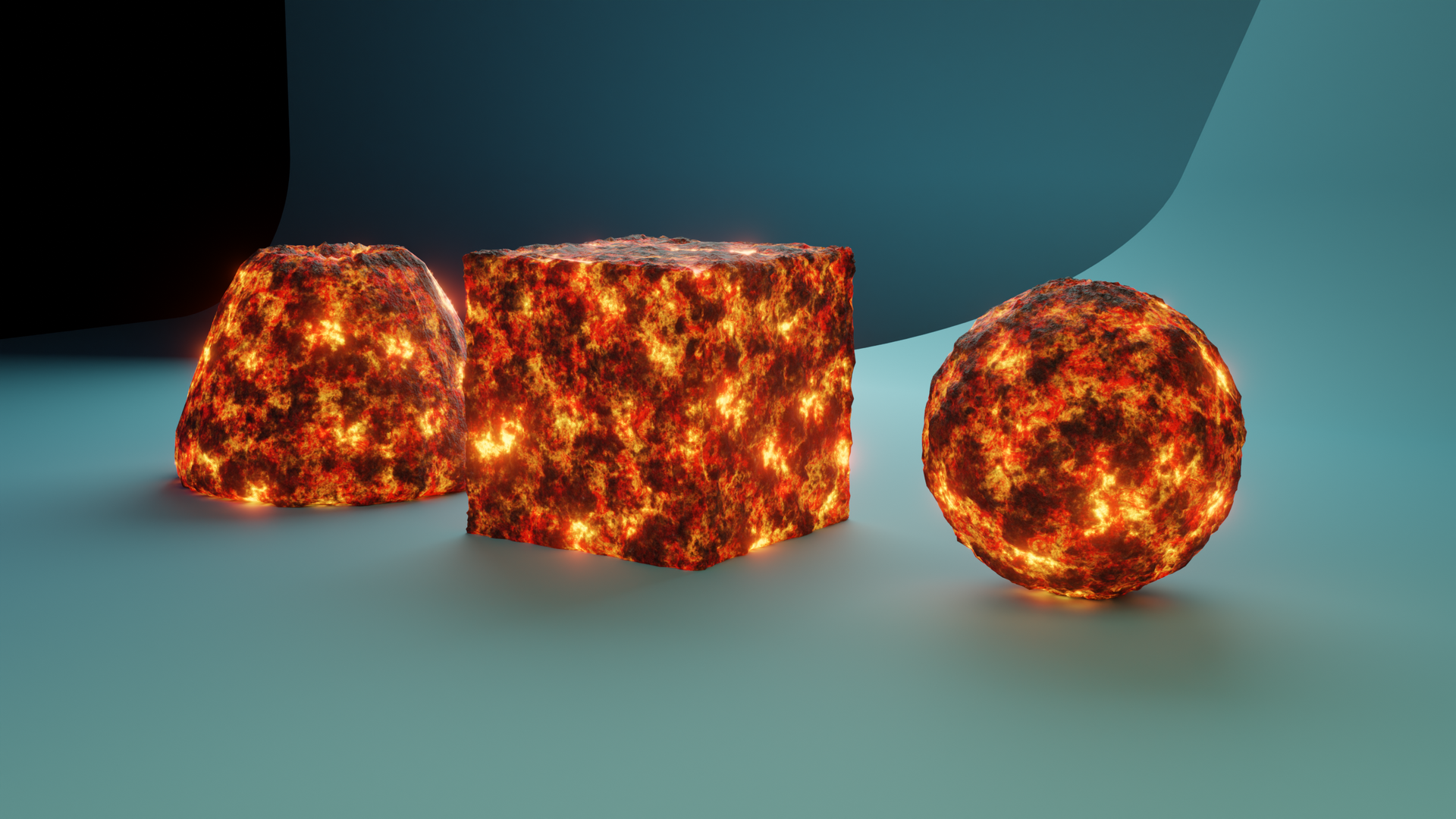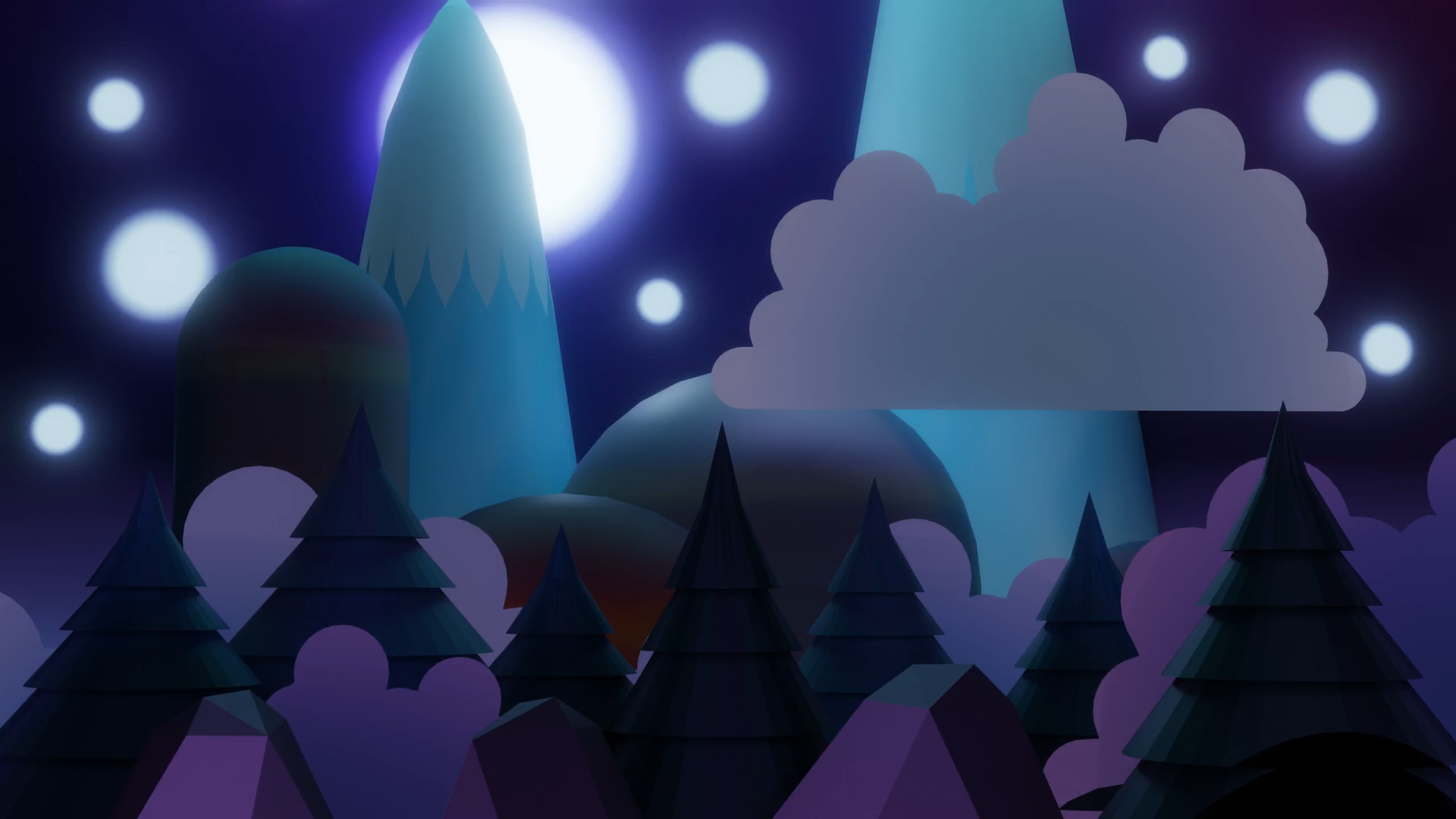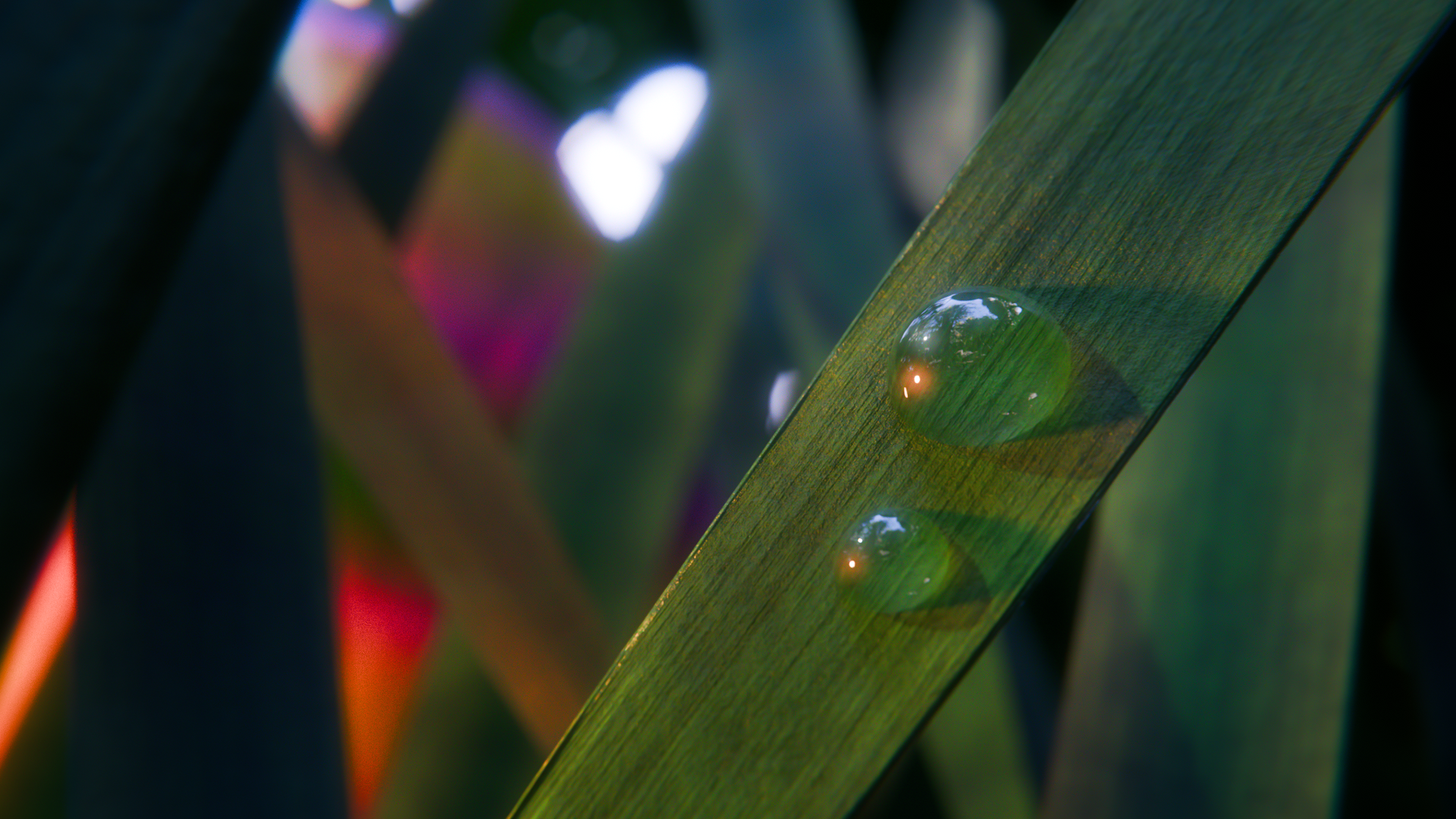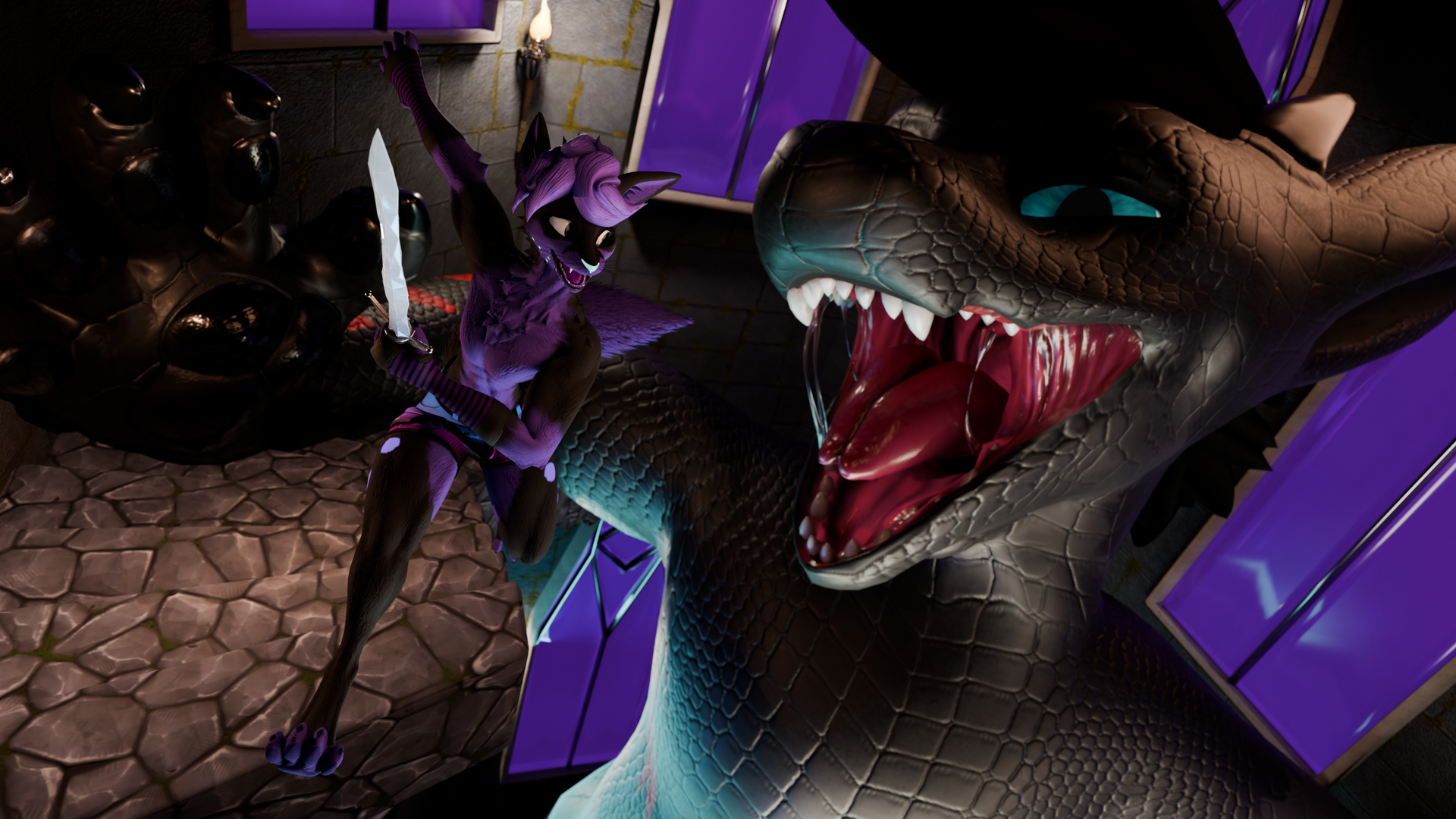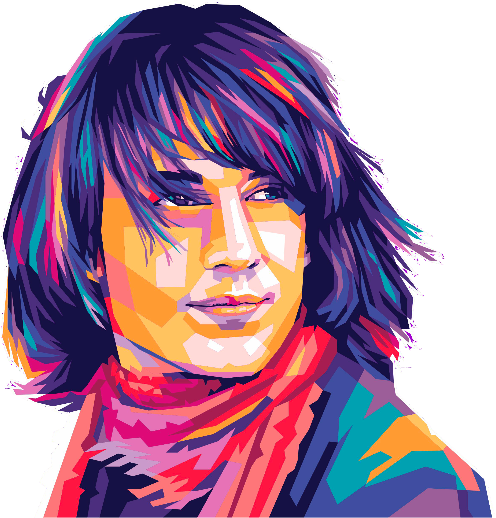Game Design
I started out with the legendary Piranhas in the Ruhr area, working in quality assurance and as a documenter, while devouring book after book about game design—after all, I was a career changer. During my junior time, I worked on object placement in the world of Magalan and on designing combat and item systems for a title that was never released. However, my primary role was as a narrative designer. I wrote quests and lore for the world. The advantage of a medium-sized studio is the generalization, which allows for a broad education.
In 2018, I started regularly attending industry events and met the people who, in 2020, brought me into an internship at Piranha Bytes. If anyone asks me how to get into the industry, the answer is always the same: get out there and talk to people. A good impression gets you into a studio. And how do you stay there long-term? By continuously learning and contributing to the games! I always was a gamer and gaming was my window into the world. It just seemed natural that I joined that great and challenging industry.
Piranha Bytes was my springboard into the industry, where I stayed until the bitter end in 2024. My last contribution was working on a pitch for an IP that was never meant to be. Sadly, the work of the last few years—also for an unannounced IP—was discarded, as the entire company was shut down. For any artist, that’s a tough blow, as we spent those years addressing so much of the feedback from our players.
Piranha Bytes is the birthplace of the Gothic, Risen, and Elex IPs—epic stories built around a consistent formula. They were RPG hidden gems that sold millions of copies over the years. Three factions, an action-movie hero, a handcrafted open world without loading zones, raw and honest humor in a gritty low-fantasy setting, and a small team always striving to achieve the impossible. From the Middle Ages to the pirate era to the futuristic post-apocalypse, the studio won several awards, including "Best RPG" at Gamescom and the Audience Award at the German Video Game Awards. The studio itself stayed grounded and like a family.
Remote Working
Even tho the studio was just 15 miles away, I joined in home office during Corona and due to convenience we all kept up that flexible working style.
Elex II
This title was the first one I was heavily involved in. Unfortunately, I've been working in vain for the last two years.
Networking
Here I met Willi Bäcker of Factor 5, an experienced guy from one of the few old hand studios of Germany! Getting in contact on conventions always opens the door to new experiences and nice chats.
Early Projects
Even in elementary school, I wrote diary entries on my dad’s PC using a text editor and embellished them into stories. I put them together on crude personal websites and, throughout my youth, wrote many stories with page counts reaching triple digits.
I manipulated HTML commands in a text editor, altered values in XML files to cheat in games, and pasted my classmates’ faces onto sprite sheets for platformer games. In briefcases and folders, I organized labyrinths made of text documents.
Initially I used online role-playing chats but later joined friends for pen-and-paper sessions and wrote fanfictions on platforms like Wattpad, fanfiktion.de, and in the Schreibnacht forum. Later I signed up at the creative network UPH in Essen, which was closed and completely restructured during the COVID pandemic.
When I learned C# at Dr. Heuer Academy in 2016, I soon veered away from the standard curriculum to build the framework for a text-based RPG in the console. My teachers approved, saying I’d actually learn more this way. That project was
Stories from Unterberg, and it's plot later evolved into
The Sixth Dawn. For this story, I wrote hundreds of pages in 2018.
In spring 2025, I completed a six-month training program as a 3D artist in Blender. The topics covered modeling, sculpting, rigging, animation, shading, and rendering.
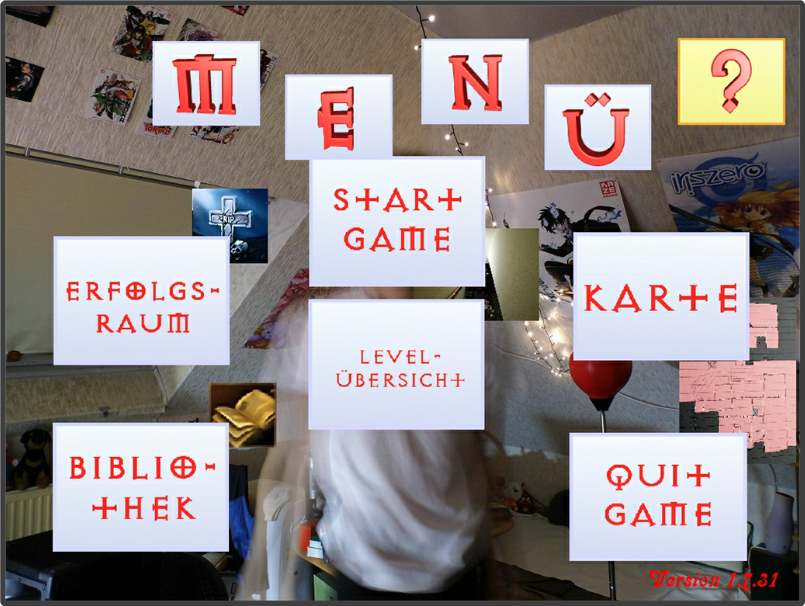
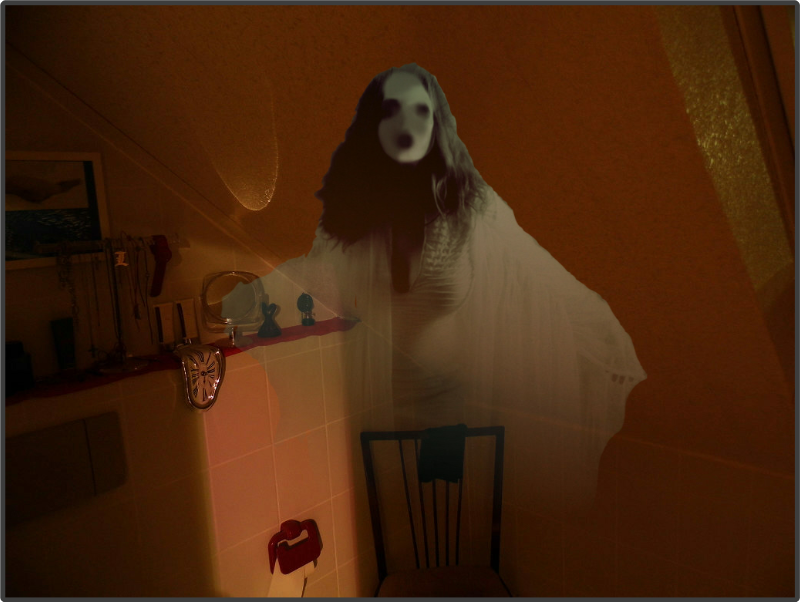
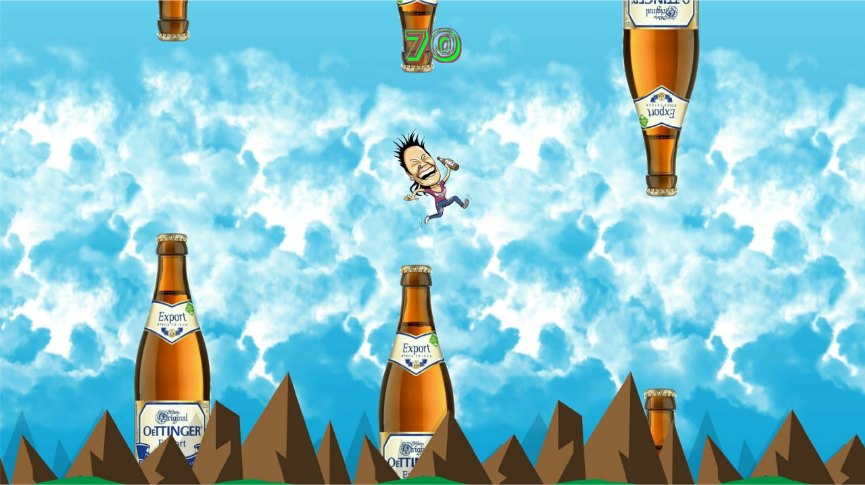
Elementality
To make the characters in my stories more believable, I developed the “Element Types” system in 2018. This system was designed to better illustrate and define archetypes, and I worked it out in detail until 2022.
Portfolio
Some works from 3D artist school (2024/2025)
Other Projects
There are many projects I can’t say much about yet because they’re still in the very early stages of development, even tho they're hot like a cup of Indonesian noodle soup!
Some of them I’ve been working on, in one form or another, for what feels like half my life. Over the years, these projects have changed themes, platforms, and directions, sometimes even merging and being completely reimagined. Not everything reaches completion, and I don’t showcase patchwork ideas that aren’t ready. That's how the industry works. Most designs will never face the light of day!
One major project I’m committed to in the future is Direwood. I’m planning a dark visual novel that gives players as much control as possible – something more than just a virtual book you click through.
Another project is The Streets of Weierbruck. I’ve lived in Gelsenkirchen for a decade now, a city that frequently ends up ranked last in cultural surveys across Germany. Weierbruck is my vision of how the world might look down on Gelsenkirchen. The catastrophic district of Ückendorf, south of the central station, serves as clear inspiration. However, Weierbruck is entirely fictional, so no one should take offense.
Prototypes for this project have already been developed in Unity, Unreal and the Construct Engine, only to be scrapped later. These kinds of endeavors are great for exploring new platforms, regardless of whether they get finished or not.
